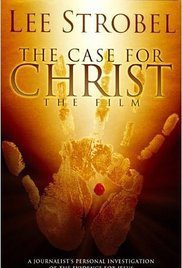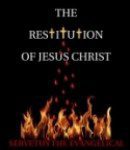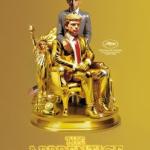 I admit it: I generally don’t care much for Christian films or even Jesus’ flicks. But Mel Gibson’s R-rated “The Passion of the Christ’ was different. Similarly, last week I saw the new film “The Case for Christ,” produced by Pure Flix and Triple Horse Studios, and I liked it a lot. It was released the weekend before Easter in 1,174 U.S. theaters, garnering 10th place in box office receipts. Rotten Tomatoes, which sometimes can brutal, gave it a very positive 84% rating. And CinemaScore, which polls moviegoers on opening night, graded it a stunning A+. On average, CinemaScore gives that grade only to two films per year. This PG-rated Christian film grossed nearly $4 million that first weekend, and to date it has taken in almost $9 million.
I admit it: I generally don’t care much for Christian films or even Jesus’ flicks. But Mel Gibson’s R-rated “The Passion of the Christ’ was different. Similarly, last week I saw the new film “The Case for Christ,” produced by Pure Flix and Triple Horse Studios, and I liked it a lot. It was released the weekend before Easter in 1,174 U.S. theaters, garnering 10th place in box office receipts. Rotten Tomatoes, which sometimes can brutal, gave it a very positive 84% rating. And CinemaScore, which polls moviegoers on opening night, graded it a stunning A+. On average, CinemaScore gives that grade only to two films per year. This PG-rated Christian film grossed nearly $4 million that first weekend, and to date it has taken in almost $9 million.
 The film is based on a true story about the Christian conversions of Lee Strobel and his wife Leslie and his eventual mega-selling book, The Case for Christ (1998), which has sold 14 million copies. Strobel was an award-winning, investigative, crime journalist for the Chicago Tribune newspaper. The film begins with Lee, played by Mike Vogel, being an atheist and Leslie, played by Erika Christensen, being agnostic. Then, at a family outing at a restaurant, their ten-year old daughter almost chokes to death on a gumball. But an off-duty nurse comes to the rescue. Leslie tells her, “you saved my daughter.” When this black, Christian lady replies by saying Jesus had something to do with it, that gets Leslie’s attention. The two later meet for coffee to discuss religion. Leslie soon becomes a joyful Christian, too.
The film is based on a true story about the Christian conversions of Lee Strobel and his wife Leslie and his eventual mega-selling book, The Case for Christ (1998), which has sold 14 million copies. Strobel was an award-winning, investigative, crime journalist for the Chicago Tribune newspaper. The film begins with Lee, played by Mike Vogel, being an atheist and Leslie, played by Erika Christensen, being agnostic. Then, at a family outing at a restaurant, their ten-year old daughter almost chokes to death on a gumball. But an off-duty nurse comes to the rescue. Leslie tells her, “you saved my daughter.” When this black, Christian lady replies by saying Jesus had something to do with it, that gets Leslie’s attention. The two later meet for coffee to discuss religion. Leslie soon becomes a joyful Christian, too.
But when Leslie tells her husband about her new-found faith, Lee strongly objects. In time, it caused a serious strain on their marriage. That is the primary focus of the film. Leslie begins attending Willow Creek Community Church with the nurse. In one scene, pastor Bill Hybels quotes John 1.12 in the New Testament, “But to all who received him [Jesus], who believed in his name, he gave power to become children of God.” Hybels then makes what I think is an unwarranted distinction by saying, “What does it mean to not only believe but receive?”
This sounds like “The Four Spiritual Laws” written by Bill Bright, founder of Campus Crusade for Christ. (In college, I was involved with CCC and years later had lunch with Bill and his wife Vonnette at CCC headquarters. The name was changed in 2012 to “Cru,” shorthand for Crusade due to the negative connotation of the medieval Crusades and Islam’s objection to them). The third law repeatedly says Jesus died for our sins. It ends with this note, “It is not enough just to know these three laws.” The fourth law begins, “We must individually receive Jesus Christ as Savior and Lord.” It then quotes John 1.12. Although I think CCC has done a tremendous work of evangelism, I doubt the author of this text intended that distinction. Nevertheless, everyone should understand that there can be a difference between intellectual assent and genuine faith.
In real life, and thus in the film, Lee Strobel sets out to try to debunk Christianity just as he would with crime investigation. His primary purpose for doing so is “to get his wife back.” But at first, he keeps this crime-busting endeavor hidden from Leslie by finding an abandoned office at the Tribune to do this work in what obviously turns out to be more than his spare time. It consists largely of him contacting recognized authorities, mostly New Testament scholars, and interviewing many of them in person. He does so with Dr. Gary Habermas and Dr. William Lane Craig (“Reasonable Faith” TV program, though this is a phone interview). They are leading experts on Jesus’ resurrection. Strobel tells Craig, “the [New Testament] gospels are filled with errors.” He explains to Craig, “It is my job to challenge the evidence until it proves otherwise.”
Strobel also discusses with other experts some questions that will become the basis of his later work as a Christian apologist. He talks with a psychologist–played by famed Faye Dunaway of “Bonnie and Clyde” fame–about the Apostle Paul’s report in his first letter (actually, it is at least the second) to believers at Corinth (15.6) that the risen Jesus appeared to over 500 people at one time. Strobel asks her the standard question that has been asked by many people for the past nearly 2,000 years—if all the people in such a large gathering could have had the same hallucination. Dunaway answers astutely for believers, “that would have been a greater miracle than the Resurrection.”
Another issue about Jesus’ resurrection that Strobel asks a doctor about is “the swoon theory.” Gnostics proposed it in the early centuries of Christianity, and it seems to be advocated in the Qur’an, which reads concerning Jesus, “they did not slay him for certain. God lifted him up to Him” (tr. N. J. Dawood, 4:158). So, this text seems to deny that Jesus died, yet affirms his heavenly ascension, as in Acts 1.9-11. In the film the doctor, who is a Christian, says he’d rather believe what the biblical gospels say about Jesus’ crucifixion since they were written 600 years prior to the Qur’an. The doctor also says those Roman guards attending Jesus’ crucifixion “were professional killers.”
As with recent Pure Flix films “God’s Not Dead” and “God’s Not Dead 2,” there are multiple stories that dovetail with this religious theme. One is that Lee investigates the conviction of a black man named Hicks who is wrongly imprisoned for fifteen years. Lee helps solve this case, and the prisoner is released. So, salvation is the prominent theme in the film. Three blacks play significant roles in this movie, one being the chief editor at the Tribune. BTW, Leslie also has another baby, a boy.
Another important story line in the film is about Lee and his father. Lee says his dad never loved him, so they have a poor relationship. When atheist Lee interviews the psychologist, she asks him about this. Then she says atheists Nietzsche and Freud suffered from such a “father wound.” Some film critics will jump on this, alleging this diagnosis is without validation.
I was surprised that the film centers completely on Lee Strobel trying to disprove Jesus’ resurrection, and it never advocates that Jesus was or is God. That is a notable omission in the film that is in the book. It advocates that Jesus is God perhaps just as much as that Jesus arose from the dead. See my post, “A Brief Review of Lee Strobel’s Book, ‘The Case for Christ.’” In it I state, “In Strobel’s interview of my friend Ben Witherington, Lee says to the good Doctor (p. 135), ‘Certainly you can’t say that Jesus’ miracles establish that he thought he was God.’ I said, ‘since later his own disciples went out and did the same things—and certainly they weren’t making claims of deity.’”
For example, chapter 7 in the book concerns the interview with Witherington. It is entitled, “The Identity Evidence,” and a subtitle says, “Was Jesus Really Convinced that He Was the Son of God?” Since Strobel becomes an evangelical Christian, this subtitle indicates, as most evangelicals believe, that Jesus being the Son of God indicates he is God. As an evangelical myself, I believed that for twenty-two years until I read myself out of it in the Bible. See my post, “At Forty Years Old I Best Saw the Light, Trinity Doctrine No Longer Seemed Right.” See also “Is Jesus God Because He Is the Son of God?” Strobel says Witherington replied to Lee’s above assertion by agreeing with him, saying (p. 135), “to Jesus, his miracles are a sign indicating the coming of the kingdom of God.”
Yet in this chapter 7, Lee writes about another one of his interviewees that chapter 12 is about–Dr. William Lane Craig. Strobel says (p. 139) of Craig’s book, Reasonable Faith, “Craig points to a substantial amount of evidence that within twenty years of the Crucifixion there was a full-blown Christology proclaiming Jesus as God incarnate.” Strobel then quotes church historian Jaroslav Pelikan saying, “God was an appropriate name for Jesus Christ.” Strobel then goes on to quote both Witherington and Craig (pp. 140-41) saying Jesus believed he was the Son of God and this meant he was God.
Chapter 8 in the book is entitled “The Psychological Evidence,” with a subtitle “Was Jesus Crazy When He Claimed to Be the Son of God?” Here, again, is the same subtle assertion as in the previous chapter subtitle. Herein, Strobel interviews Christian psychologist Dr. Gary Collins who taught at Trinity (TEDS) seminary for twenty years. Lee says to Collins (p. 146), “Jesus said he was God–was he crazy?”
So, we now know for sure that Strobel as an atheist believed Jesus said he was God. This is where I think Strobel goes wrong in his investigation of Jesus. Instead, he should have stuck with the sole question that occurs throughout the movie–did Jesus arise from the dead? Collins answered Strobel’s question “no,” but he meant only that Jesus wasn’t crazy. Later in the interview Collins says (p. 148), “Jesus didn’t just claim to be God–he backed it up with amazing feats of healing, with astounding demonstrations of power over nature,… and ultimately with his own resurrection from the dead, which absolutely nobody else has been able to duplicate. So when Jesus claimed to be God, it wasn’t crazy. It was the truth.”
Strobel, the atheist investigator, does not object to this Collins statement; rather, he subtly leads readers to think Jesus did claim to be God and proved it with miracles. Yet in the previous chapter, as I stated above, Strobel and Witherington agreed that Jesus’ miracles did not indicate he was God. (It’s the same about Jesus’ resurrection since the Bible says all of God’s dead people will be resurrected at the end of the age.) Strobel continues this theme in this chapter by saying to Collins (pp. 148-49), “Some people have tried to shoot down these [Jesus’] miracles that supposedly help authenticate Jesus’ claim to being the Son of God,… the miracles that supposedly back up Jesus’ claim to being the Son of God.”
Folks, in the New Testament gospels, Jesus never claims to be God. Strobel constantly makes this claim in his book without citing any biblical texts to prove it. C. S. Lewis does the same thing in his bestselling book on Christian apologetics, Mere Christianity. Strobel continues in this chapter (p. 153), referring to Dr. Collins, “while driving home, I returned to the central issue that had brought me to him: Jesus claimed to be God.”
Again, Strobel says in chapter 9 of his book (pp. 156-57), “Jesus claimed to be God.” In this chapter, Strobel interviews Dr. D. A. Carson, esteemed New Testament scholar at Trinity. Strobel writes, “My initial question centered on why Carson thinks Jesus is God in the first place.”
What is most surprising is that this theme of Jesus believing and claiming he was God appears on page after page in this book, The Case for Christ, yet this assertion is never made in the movie. So, I regard the movie as a whitewash of the book, a cleaning up of its wrong theology by providing the biblical focus of Jesus being raised from the dead. Yes, the book presents Jesus’ resurrection as well, but it should only say that and not that Jesus claimed to be God. However, Strobel is telling his story in the book. I’m just saying that he got off somewhat on the wrong foot from the very beginning of his investigation by assuming that Jesus claimed to be God. The foundation of Christianity is Jesus’ resurrection. That is the sole thrust of the endings of all four New Testament gospels, much of the book of Acts, and fortunately this film.
In the film, Strobel concludes from his investigation that the evidence for Jesus’ resurrection is substantive. He decides it would take more faith for him to stay an atheist that to be a Christian. While alone, he says out loud, “All right God, you win.” Strobel doesn’t regard his subsequent conversion to Jesus a “leap of faith;” rather, it is a dependence on the historical evidence. Key lines on this subject in the film are Lee praying with Leslie for the first time, saying “God, I don’t know what I’m doing.” Many people can relate to this. Lee also prays, “God, I cannot ignore the evidence.”
When Lee’s father dies, he attends the funeral. He sits in his dad’s office chair, looks in his wallet lying on the desk, and pulls out two Tribune clippings that report Lee’s achievements at the Tribune. Lee then cries, realizing that his dad really did love him.
Lee Strobel eventually asks his editor at the Tribune to publish his conversion story. The editor declines. But when Lee tells Leslie about it, she says, “how about a book?” Look what those four words started. Fourteen million copies of The Case for Christ are now in print. And Strobel is a leading Christian apologist with several other such books to his credit. The film ends by saying he and Leslie now live in Houston, my previous hometown for nearly forty years. And we viewers are informed that their daughter Alison, who choked on that gumball, has written six children’s novels.
“The Case for Christ” is a heartwarming movie that convincingly tells about an atheistic journalist’s quest to intellectually prove Christianity wrong only to wind up believing in the risen Jesus as Savior and Lord and becoming a prominent lay apologist for Christian faith. Praise the Lord! But there is a serious disjunct between the film and the book that regards a most important subject–whether or not Jesus is God.
To see a list of now 75 posts about the Bible not saying Jesus is God, click here.

















